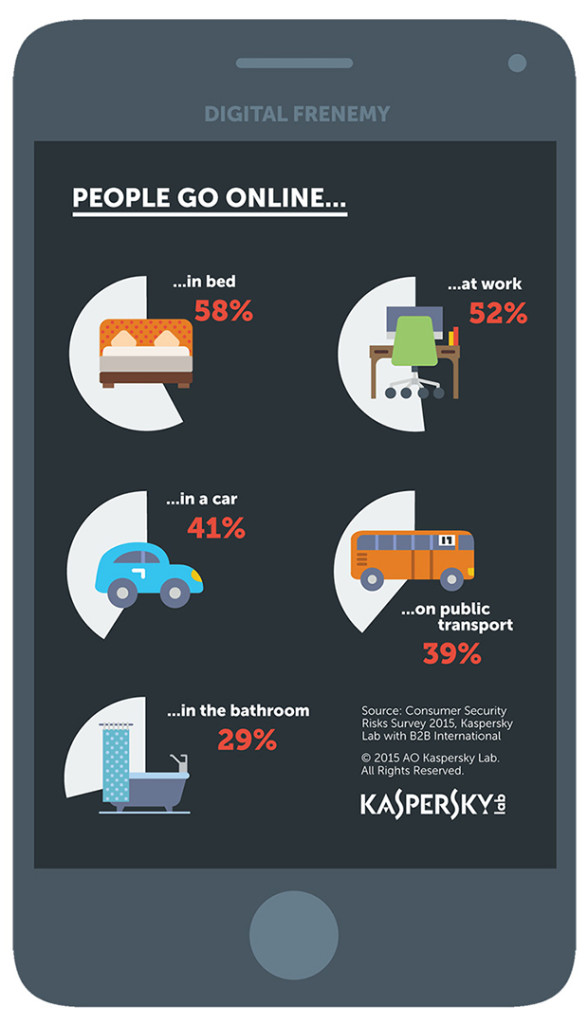A research by Kaspersky Lab and B2B International shows that the overwhelming majority of people (87%) store important, confidential and sometimes irreplaceable information on their smartphones, including passwords, messages, photos, contacts and files.
This trust could be leaving users at risk as devices can be hacked and private information exposed to the world.
“The bond of trust between users and their devices can lead them to forget about security. It’s hard to imagine that something we carry close to us at all times and turn to for everything, could ever become a threat. But it can, and does happen. A digital friend can become a digital frenemy,” said Victor Yablokov, head of mobile product line at Kaspersky Lab.
The study also found that 29% take their smartphones into the bathroom and 25% share secrets with their device that they don’t want anyone else to know. Also, one in four said that their device carries sensitive information they wouldn’t want anyone else to see.
Further, these devices are carried and used everywhere, including at work (52%), in a car (41%), on public transport (39%) and in bed (58%).
Outside the home, these devices face potential risks that include damage, loss and theft, but also hacking by cyber-criminals intent on stealing data or even spying on the user. Devices that are used on open Wi-Fi networks are particularly vulnerable to attack.
However, few people take action to reduce their risk. Our study found that just 26% of users adapt their online activity when on an insecure public Wi-Fi network, despite the fact that hackers can easily intercept data and passwords.
Only around half (47 %) takes advantage of the security features that come with the device, such as remote blocks or find-my-device capability.
“A failure to appreciate the potential risks and to protect our devices and information accordingly could mean the loss of confidential information, money and even our identities. The device camera that we use to look out onto the world can be hacked and used to look into our world instead. Security is simply not an optional extra,” Yablokov said.
The impact of not protecting the devices can be far-reaching.
According to the study, a quarter of those whose device had been lost or stolen discovered that personal or secret information had been leaked.
Even at home, there are risks, particularly in sensitive places such as bedrooms and bathrooms, when a hacked device could turn the webcam on the user.
To ensure a digital friend doesn’t transform into a digital frenemy, Kaspersky Lab recommends that people always set strong passwords for devices and for their online accounts, install a trusted security software and take care when accessing websites and downloading apps, particularly over insecure Wi-Fi networks.
To check if an online behavior is safe, follow https://blog.kaspersky.com/cyber-savvy-quiz. To get more tips on how to be protected, check https://blog.kaspersky.com/tag/cybersavvy.















































































































